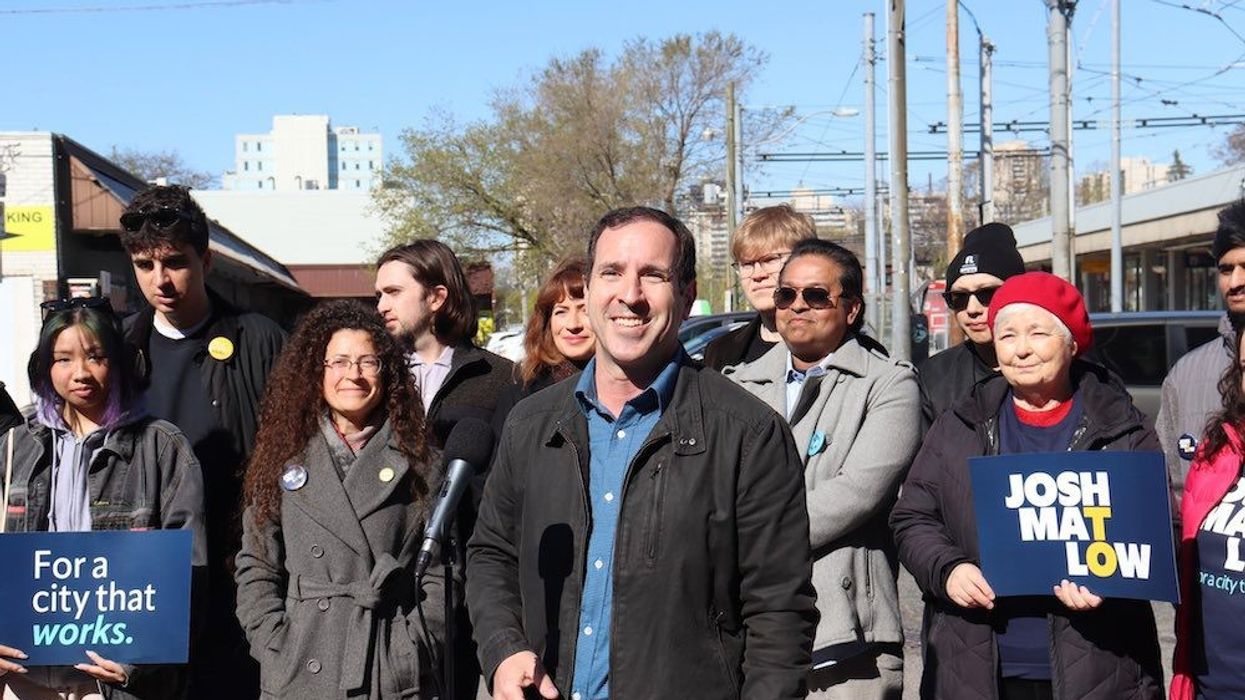Toronto mayoral candidate Josh Matlow released another step in his housing plan on Thursday, outlining several major changes he would make to bring more housing to the city.
Perhaps the most notable move from the current city councillor would see the approval of nine-storey buildings as-of-right on designated avenues around the city, with no terraced step backs or "pyramid" requirements -- a design style meant to make taller buildings less imposing, but restricts the number of units that could be built on a site.
Similarly, Matlow says he will review density and height limitations on major arterial roads where it makes sense to accommodate more people. This comes on the heels of City Council approving multiplexes up to four units on residential properties across Toronto as a means to add more gentle density and missing middle housing.
Matlow also notes he will establish a dedicated team of City lawyers, architects, and planners to speed up applications for the addition of rental units to existing homes. He also plans to fast-track development applications that "provide meaningful community benefits, such as affordable housing."
To encourage the construction of new apartment buildings, Matlow is proposing a shift in the property tax classification for these builds from Multi-Unit Residential to lower Residential rates. Matlow previously proposed a 2% property tax increase that would cost the average Toronto homeowner $67 per year, raising more than $390M over five years, which would be used to help fund improvements to the TTC, snow clearing, public washrooms, and garbage bins.
Matlow also highlights a logistical problem with the current City Planning review process, saying that the City division "reviews individual planning applications without considering the needs of the broader community as a whole, which leads to delays and lengthy appeals." To that end, he is proposing a change to the development process that would see city planners work with stakeholders at the outset of an application to develop community housing and services plans.
"These comprehensive area plans will outline neighbourhood services, infrastructure and parks up front and eliminate costly, lengthy ad-hoc consultations," the announcement reads.
“A comprehensive housing plan is not just about buildings – it’s about building communities,” adds Matlow. “A healthy community is affordable and has the services, infrastructure, and parks that contribute to a great quality of life.”
If elected, Matlow says he will invest $407.6M to lower the cost of housing, support homeless residents, and establish more neighbourhood amenities including childcare, schools, parks, and infrastructure.
Matlow has previously advocated for stopping the Gardiner East rebuild, instead calling for an at-grade boulevard which would free up enough land to build 8,000 new homes and, based on a report from Colliers Canada, could bring in nearly $500M in revenue to the City via land sales.
He has also proposed a $300M affordable housing initiative that would see the redevelopment of City-owned lands including Green P and TTC parking lots.





















